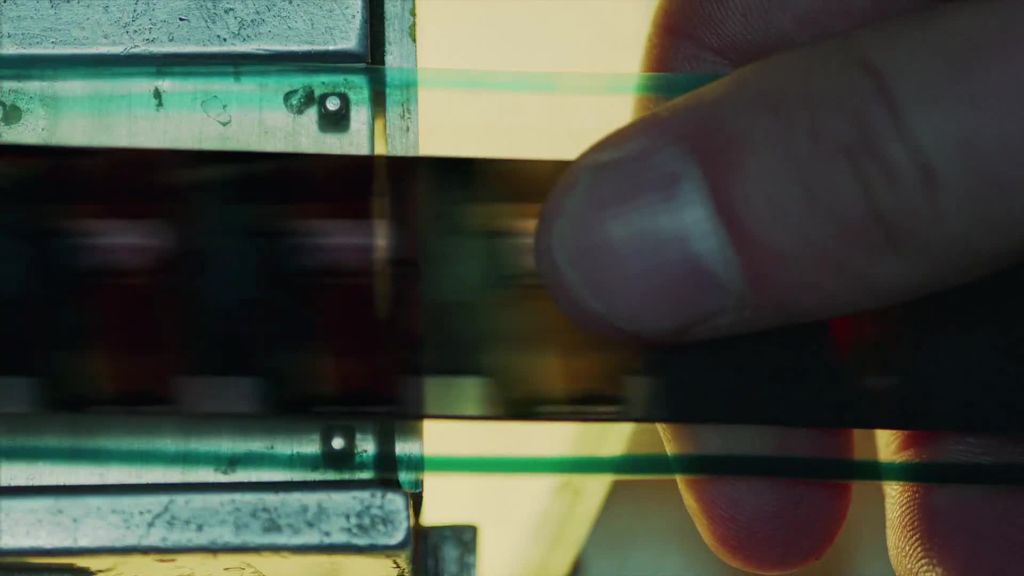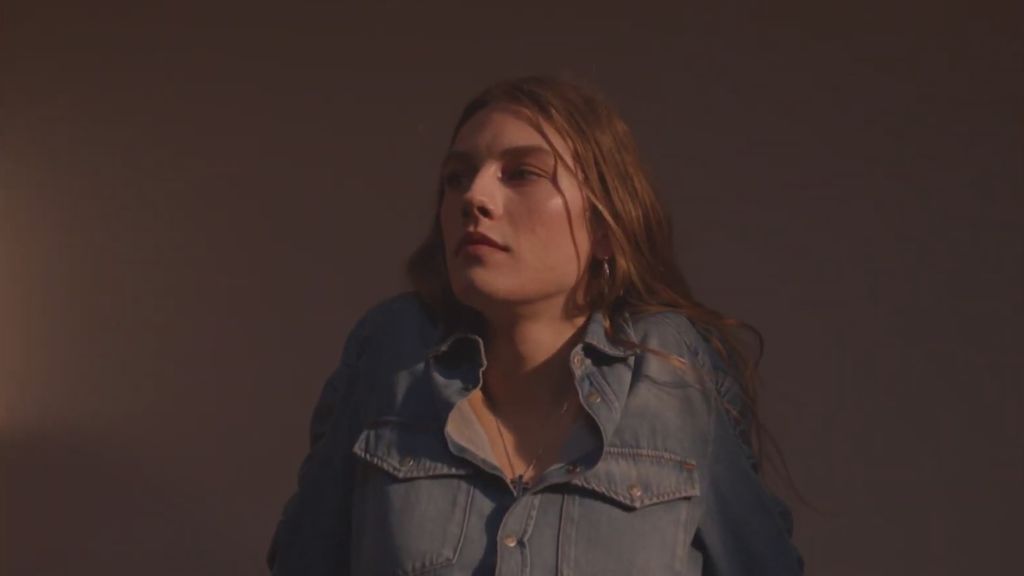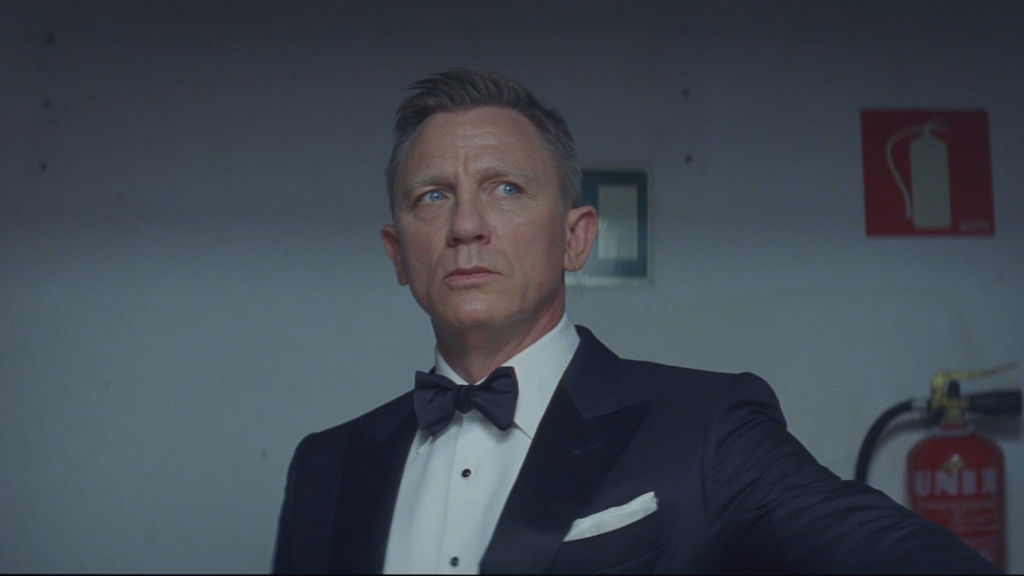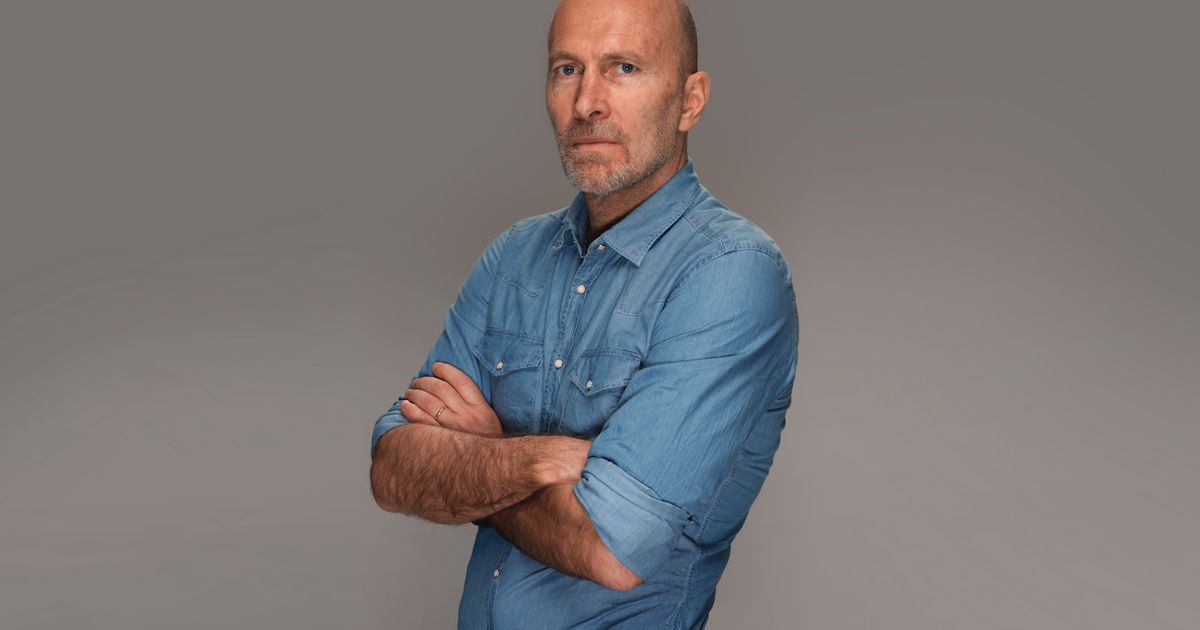The Lion’s share
This year's Cannes will see Bruno Bertelli – Global CEO of Le Pub, Global CCO of Publicis Worldwide, and CCO of Publicis Groupe Italy – adding another appellation to his collection, that of Jury President of the Film Lions category. Selena Schleh caught up with the gong-laden legend to discuss the proliferation of film, the central role of the category at Cannes and the impact of AI.
As the holder of three monikers within the Publicis Groupe, Bruno Bertelli is a man of many titles. But nowhere near as many as his awards.
With over 300 trophies to his name (including 143 Cannes Lions) making him not only the most awarded Italian creative in the world, but the most awarded Chief Creative Officer in 2021 – it begs the question: where on earth does he keep them all?
His mantlepiece must have long since buckled under the weight. The guest loo? A secret lock-up garage? Or has he had them smelted down and turned into the advertising equivalent of the Iron Throne? Sadly, we’ll never know – for along with being one of the most decorated creatives in the business, Bertelli is also one of the hardest to pin down. Having finally managed to carve out half an hour from his hectic schedule, there’s no time to waste on fanciful chatter when weightier matters – such his role as Jury President of the Film Lions at Cannes this year – are on the agenda.
The Film Lions category is an institution: one of the most pivotal categories of Cannes Lions and a true expression of creativity at its highest level.
Although it’s not Bertelli’s first rodeo, having helmed the Outdoor Lions judging panel in 2017, he’s far from blasé about his responsibilities. Film, after all, is very close to Bertelli’s heart – in a previous interview with shots, he admitted that if he wasn’t doing his current job, he’d be a filmmaker.
But on an industry-wide rather than personal level, it’s fair to say the Film Lions retains a unique cachet amidst the festival’s mushrooming categories (the new Entertainment Lions for Gaming brings the total to 30 this year). “The Film Lions category is an institution: one of the most pivotal categories of Cannes Lions and a true expression of creativity at its highest level,” he says.
Credits
powered by
- Agency Publicis/Milan
- Production Company Division
- Director Francois Rousselet
-
-
Unlock full credits and more with a Source + shots membership.
Credits
powered by
- Agency Publicis/Milan
- Production Company Division
- Director Francois Rousselet
- Art Director Cecilia Moro
- Copywriter Fabio Caputi
- Account Management Giada Salerno
- Copywriter Beatrice Mari
- Creative Director Milos Obradovic
- Executive Creative Director Cristiana Boccassini
- Global Chief Creative Officer Bruno Bertelli
- Global Digital Creative Director Mihnea Gheorghiu
- Senior Art Director Simone Di Laus
- Grade MPC/Paris
- Music Grand Central Recording Studios
- Producer Matilde Bonanni
- Producer Jules De Chateleux
- DP Simon Chaudoir
- Editor Nicolas Larrouquere
- Colourist Richard Fearon
- VFX Supervisor Timo Huber
- VFX Lydia Evitt
- Agency Producers Cecilia Barberis
- Creative Supervisor Costanza Rossi
- Planner Bela Ziemann

Credits
powered by
- Agency Publicis/Milan
- Production Company Division
- Director Francois Rousselet
- Art Director Cecilia Moro
- Copywriter Fabio Caputi
- Account Management Giada Salerno
- Copywriter Beatrice Mari
- Creative Director Milos Obradovic
- Executive Creative Director Cristiana Boccassini
- Global Chief Creative Officer Bruno Bertelli
- Global Digital Creative Director Mihnea Gheorghiu
- Senior Art Director Simone Di Laus
- Grade MPC/Paris
- Music Grand Central Recording Studios
- Producer Matilde Bonanni
- Producer Jules De Chateleux
- DP Simon Chaudoir
- Editor Nicolas Larrouquere
- Colourist Richard Fearon
- VFX Supervisor Timo Huber
- VFX Lydia Evitt
- Agency Producers Cecilia Barberis
- Creative Supervisor Costanza Rossi
- Planner Bela Ziemann
Bertelli has overseen groundbreaking work for Diesel, including the Go With The Flaw series.
With entries required to “demonstrate brilliant brand storytelling intended for a screen”, the overall criteria remains deceptively simple, but, says Bertelli, “the complexity of the film environment [has] certainly [become] greater: the number of films to be analysed and evaluated will be higher and it will be important to [judge] each film in its own sub-category of reference.”
As a result, he’ll be directing the jury to laser-focus in on the entry sub-categories, “because on the basis of this, a film can be seen through a different lens and get a different evaluation.” He’s also keenly aware of the numbing effect the hours spent in darkened rooms can have on even the sharpest creative minds – “our brains ‘get used to’ watching films and start losing the high levels of concentration needed to give each piece the attention it deserves” – and as a result, will propose limiting judging sessions to an hour at a time, with regular breaks.
Our brains ‘get used to’ watching films and start losing the high levels of concentration needed to give each piece the attention it deserves.
With the methodology sorted, what makes a film Lion-worthy, in his book? For Bertelli, it’s no longer enough that a film combines a blinder of a creative idea with beautiful craft: “Films today are the result and the strongest expression of a brand’s strategic positioning. Therefore, not only is the creative idea very important but also how it corresponds to the positioning of the brand and its tone of voice. The latter must be consistent with how the brand wants to position itself.”
Credits
powered by
- Agency Publicis/Milan
- Production Company Division/France
- Director Francois Rousselet
-
-
Unlock full credits and more with a Source + shots membership.
Credits
powered by
- Agency Publicis/Milan
- Production Company Division/France
- Director Francois Rousselet
- DP Matias Boucard
- Production Service Family Production
- Post Production Mikros Animation/Paris
- Music Sizzer Amsterdam
- Chief Creative Officer Global Bruno Bertelli
- Chief Creative Officer Cristiana Boccassini
- Global Digital Creative Director Mihnea Gheorghiu
- Global Creative Director Thiago Cruz
- Head of Production Francesca Zazzera
- Producer Anna Sica
- Art Director Mattia Mingardo
- Copywriter Silvia Serreli
- Talent Harlow Monroe
- Producer Jules De Chateleux
- Editor Nicolas Larrouquere
- Line Producer Alexis Fonvieille
- Executive Service Producer Nikita Bukowski
- VFX Producer Sebastien Noyon
- VFX Supervisor Franck Lambertz
- Flame Artist Flore Mounier
- Colourist Arthur Paux
- Music Supervisor Michael Bertoldini
- Music Producer Seppl Kretz

Credits
powered by
- Agency Publicis/Milan
- Production Company Division/France
- Director Francois Rousselet
- DP Matias Boucard
- Production Service Family Production
- Post Production Mikros Animation/Paris
- Music Sizzer Amsterdam
- Chief Creative Officer Global Bruno Bertelli
- Chief Creative Officer Cristiana Boccassini
- Global Digital Creative Director Mihnea Gheorghiu
- Global Creative Director Thiago Cruz
- Head of Production Francesca Zazzera
- Producer Anna Sica
- Art Director Mattia Mingardo
- Copywriter Silvia Serreli
- Talent Harlow Monroe
- Producer Jules De Chateleux
- Editor Nicolas Larrouquere
- Line Producer Alexis Fonvieille
- Executive Service Producer Nikita Bukowski
- VFX Producer Sebastien Noyon
- VFX Supervisor Franck Lambertz
- Flame Artist Flore Mounier
- Colourist Arthur Paux
- Music Supervisor Michael Bertoldini
- Music Producer Seppl Kretz
Bertelli's work for Diesel includes the celebration of the transgender experience, Francesca.
That consistency of tone is what unifies the award-winning work that Bertelli has overseen for brands as diverse as Netflix Italia, Heineken and Diesel since taking the creative reins at Publicis Italia in 2011.
2020’s “anti-ad” for Heineken, Daniel Craig vs James Bond, is a prime example – a delicious bottling of the brewer’s ironic, relatable humour and lighthearted approach into a spot that outshone at least one of the more recent Bond films (Quantum of Solace, we’re looking at you) – and was unmistakably Heineken.
Similarly, Diesel’s creative renaissance over the past decade owes much to films that express the brand’s anarchic spirit in unexpected and authentic ways – from lauding squints and sticking-out ears in Go With The Flaw, to poking fun at influencers (Be A Follower) and celebrating transgender values in Francesca.
I think we will encounter a shift towards purpose being expressed through a more humorous way, a macro-trend that is pervading more and more areas at the moment.
Consistency of tone of voice is key for success – but so is the ability to read the room and capture the zeitgeist. So what trends are we looking at in film this year? Humour prevailed in 2022, and Bertelli reckons it’s here to stay, as brands look to lighten the collective mood amidst the soaring cost of living and the war in Ukraine.
“With the situation of uncertainty that the world is experiencing right now, brands’ needs have shifted from delivering brand campaigns to delivering product campaigns,” he says. “I think we will encounter a shift towards purpose being expressed through a more humorous way, a macro-trend that is pervading more and more areas at the moment, and which I think is a response and reaction to the period of instability that we are all going through.”
Credits
powered by
- Agency Publicis.Poke/London
- Production Company SMUGGLER/London
- Director Miles Jay
-
-
Unlock full credits and more with a Source + shots membership.
Credits
powered by
- Agency Publicis.Poke/London
- Production Company SMUGGLER/London
- Director Miles Jay
- Ad Agency Publicis/Milan
- Editing Work Editorial/London
- Post Production The Mill/London
- Sound Design Grand Central Recording Studios
- Executive Producer Patrick Milling-Smith
- Executive Producer Fergus Brown
- Executive Producer Brian Carmody
- Producer Gustav Geldenhuys
- Production Designer Robin Brown
- Production Manager Monica Cristeto
- Production Manager Sam Jackson
- DP Chayse Irvin
- Editor Ben Jordan
- Editor Hasani Franke
- Editor Stuart Greenwald
- Exec Post Producer Misha Stanford-Harris
- Sound Designer Raja Sehgal
- Associate Creative Director Gustavo Lacerda
- Associate Creative Director Fabrizio Tamagni
- Associate Creative Director Michela Talamona
- Chief Creative Officer Bruno Bertelli
- Chief Creative Officer Cristiana Boccassini
- Digital Creative Director Mihnea Gheorghiu
- Digital Creative Director Milos Obradovic
- Digital Creative Director Sandra Bold
- Executive Creative Director Marco Venturelli
- Executive Creative Director Luca Cinquepalmi
- Executive Creative Director Luissandro Del Gobbo
- Head of Production Mariella Maiorano
- Post Producer Sabrina Sanfratello
- Producer Carla Solaro di Monasterolo
- Producer Colin Hickson
- Talent Daniel Craig

Credits
powered by
- Agency Publicis.Poke/London
- Production Company SMUGGLER/London
- Director Miles Jay
- Ad Agency Publicis/Milan
- Editing Work Editorial/London
- Post Production The Mill/London
- Sound Design Grand Central Recording Studios
- Executive Producer Patrick Milling-Smith
- Executive Producer Fergus Brown
- Executive Producer Brian Carmody
- Producer Gustav Geldenhuys
- Production Designer Robin Brown
- Production Manager Monica Cristeto
- Production Manager Sam Jackson
- DP Chayse Irvin
- Editor Ben Jordan
- Editor Hasani Franke
- Editor Stuart Greenwald
- Exec Post Producer Misha Stanford-Harris
- Sound Designer Raja Sehgal
- Associate Creative Director Gustavo Lacerda
- Associate Creative Director Fabrizio Tamagni
- Associate Creative Director Michela Talamona
- Chief Creative Officer Bruno Bertelli
- Chief Creative Officer Cristiana Boccassini
- Digital Creative Director Mihnea Gheorghiu
- Digital Creative Director Milos Obradovic
- Digital Creative Director Sandra Bold
- Executive Creative Director Marco Venturelli
- Executive Creative Director Luca Cinquepalmi
- Executive Creative Director Luissandro Del Gobbo
- Head of Production Mariella Maiorano
- Post Producer Sabrina Sanfratello
- Producer Carla Solaro di Monasterolo
- Producer Colin Hickson
- Talent Daniel Craig
Publicis Milan's cheeky Heineken spot wittily explored the unBond-like reality of actor Daniel Craig.
The big conversation, of course – and not limited to film - is going to be around AI and its impact on creativity: is it an enabler or a usurper? Publicis Groupe was an early adopter of AI, having launched Marcel, its professional assistant platform powered by artificial intelligence and machine learning, in 2017, and the technology has sat at the centre of the Publicis model for years.
Asked how he sees AI reshaping advertising, Bertelli gives a typically measured response. “Artificial intelligence is providing wonderful technical possibilities, but, as with other innovations, you need to know its opportunities and limitations, becoming an expert and making the most of its potential. It is certainly a tool that gives creativity the possibility of implementing more options in a shorter time and at a lower cost.”
At the end of the day, the creative idea that sparks within a human brain cannot be replicated by a machine.
When it comes to the prospect of AI creating entire films from scratch, you only have to watch the hilarious horror show that is Synthetic Summer, a spoof beer spot by London-based production company Private Island, to appreciate the limits of generative AI and synthetic video – superficially convincing, but a closer look sends you tumbling into the uncanny valley.
At the other end of the spectrum, start-ups like Waymark and Softcube are using AI to generate ‘bespoke’ video ads for clients in seconds, overlaying images grabbed from the web by data-scraping tools with a synthesised voiceover, reading a script written by OpenAI’s GPT-3. Speedy? Certainly. Slick? Maybe. Creative? Not so much.
Rather than generative AI replacing live-action and animation, it’s most likely to be used to enhance and refine – which is why human creativity, Bertelli remains convinced, will still play a vital part in the process: “At the end of the day, the creative idea that sparks within a human brain cannot be replicated by a machine.”
Whether it’s a human, a piece of tech, or a combination of the two behind the films competing for a Lion this year, there’s no doubt that Bertelli will be directing his jury with the same dedication that has seen him rise from a humble copywriter to overseeing the creative output of the entire Publicis group. After all, he says, awards matter: “They offer the opportunity to discover and work with the best talent in the market; they are a way to showcase your work and to be able to work with the best brands.”
But what we still want to know is: where does he keep his?
)













